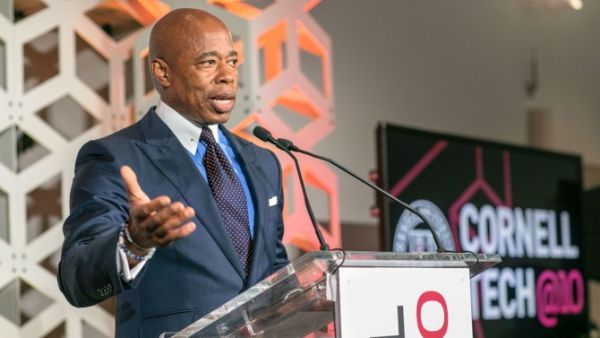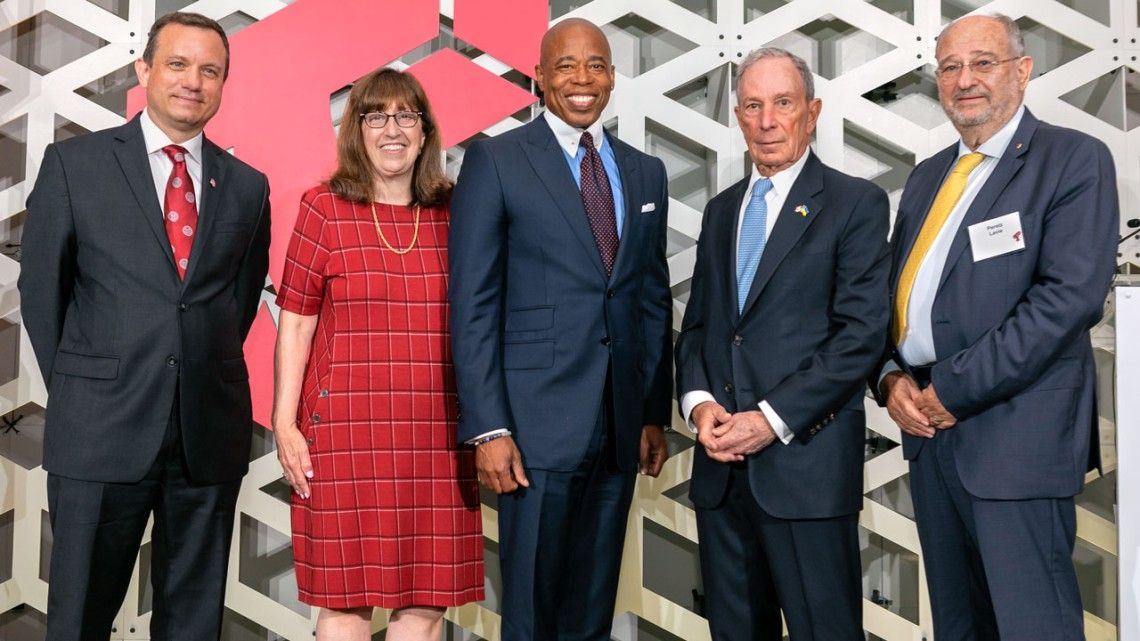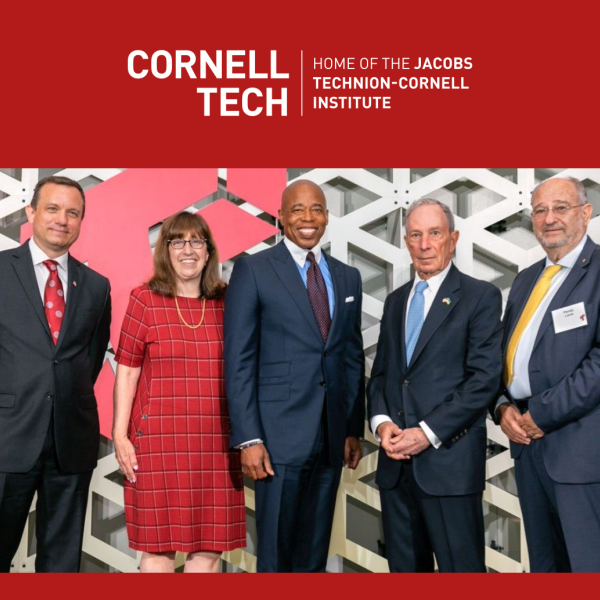June 9, 2022
New York City mayors past and present – Michael Bloomberg and Eric Adams – attended a June 7 celebration of the 10th anniversary of Cornell Tech, the technology and engineering-focused campus that Cornell launched in 2012 with its academic partner, the Technion-Israel Institute of Technology.
The evening program on Cornell Tech’s Roosevelt Island campus brought together many of the key players who have contributed to its success, including Bloomberg; President Martha E. Pollack; Greg Morrisett, the Jack and Rilla Neafsey Dean and Vice Provost of Cornell Tech; former president David Skorton; founding Cornell Tech dean Dan Huttenlocher; and former Technion president Peretz Lavie.
Since winning then-Mayor Bloomberg’s global competition, Cornell and Technion’s joint institution has grown from a handful of students located in Google’s Manhattan office to more than 1,500 alumni across eight master’s degrees and seven Ph.D. programs. Through its entrepreneurship programs, Cornell Tech has also spun out more than 80 start-ups that have cumulatively raised more than $150 million in funding.

“New York City is going to be the center of the cybersecurity, life sciences and blockchain industries,” Adams said. “[Cornell Tech] is an amazing seed that was planted and that’s producing a harvest for all of us.”
Bloomberg outlined how his administration’s vision for the campus emerged in the aftermath of the 2008 economic downturn. Its success has inspired similar academic collaborations in other cities and states across the country, he said.
“This school shows what is possible when public and private sectors combine strengths and resources,” Bloomberg said. “It’s an investment in the future, and the next generation to come.”
He also thanked Skorton for his key efforts in helping launch the campus, and Pollack for her “outstanding leadership and commitment to Cornell Tech [that] has been critical to the school’s progress.”
Pollack said she was first drawn to Cornell in part because of its ambitious vision to build what she called “a new model of technology education and leadership.” She spoke of the importance of creating new kinds of technology leaders for the future – people with “not only a drive for innovation, but a deep understanding of the intersections between technology, society and humanity.”

Representing Technion, Lavie recalled his early trepidation about the daunting task of launching a new school, remembering that he at one point even phoned Seth Pinsky, then the president of the New York City Economic Development Corporation, to make sure the proposal wasn’t a joke. He thanked Pinsky, Bloomberg and Bob Steel, Bloomberg’s deputy mayor for economic development, for their work and support in “giving us the unique opportunity to build a revolutionary academic institution from scratch.”
Looking ahead to the next 10 years, Morrisett said Cornell Tech plans to begin the second phase of its growth. He said the campus will ultimately expand from 90 faculty and affiliates to roughly 200 faculty, and from 500 to 2,000 students.
“We are poised to become the premier higher-ed institution for tech in New York and beyond,” Morrisett said. “This is only the beginning.”
Organized in partnership with Bloomberg Philanthropies, the event featured an anniversary video as well as a site-specific performance of “The Freedom to Innovate,” a dance piece developed by Ballet Hispánico that honored the nearby Four Freedoms Park and was a collaboration with Cornell Tech researchers.
Adam Conner-Simons is director of communications for Cornell Tech.



